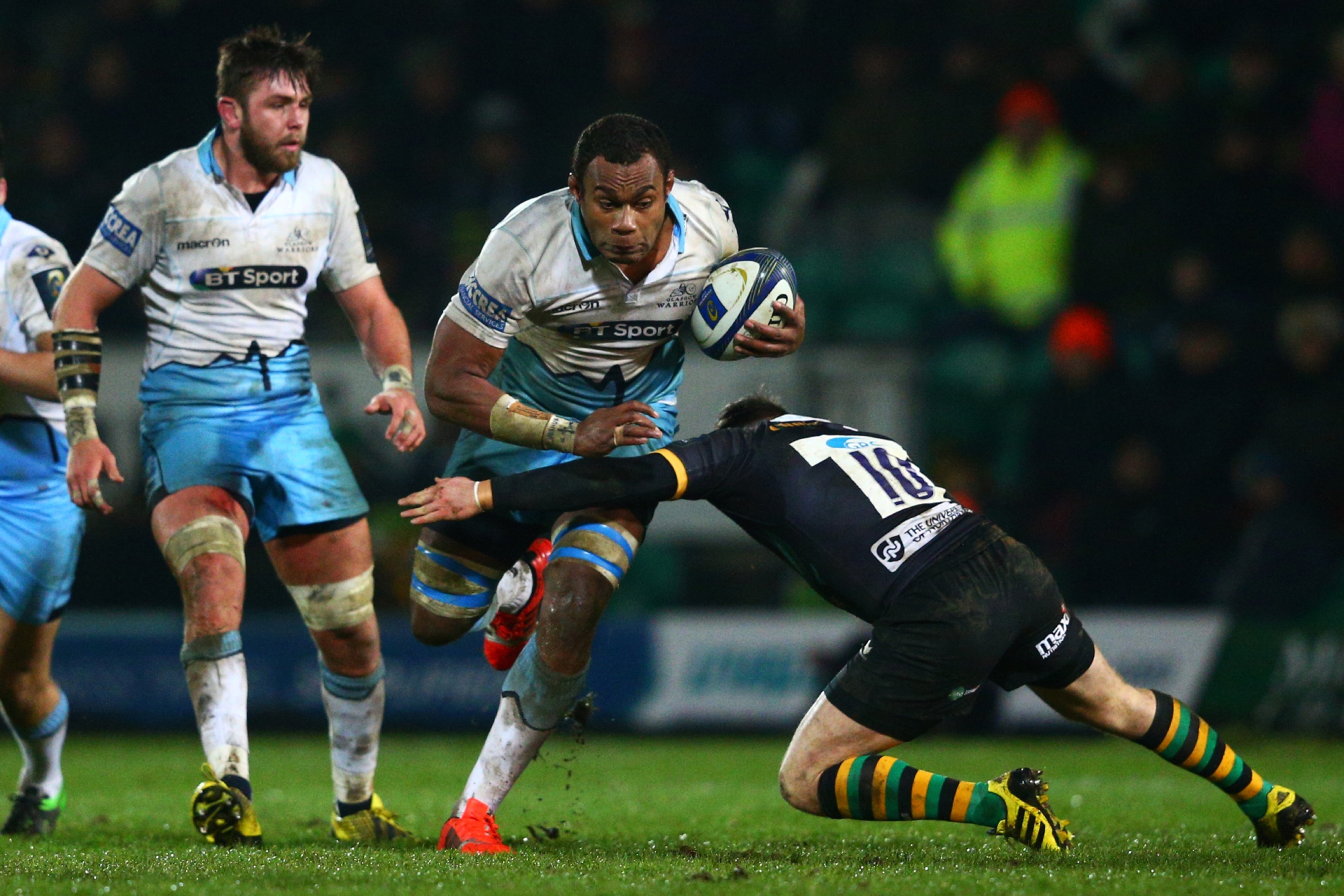Glasgow’s long and gruelling season came to an end – in tears for many – with the Guinness PRO12 semi-final defeat to Connacht at the windy Sportsground on Saturday.
Yet for all the battles on pitches all over Europe, the most significant moments in Glasgow’s season – and indeed, for all of pro rugby in Scotland – occurred off the field and wholly out of their control.
The most recent was the signing by France’s Top 14 clubs of a new and lucrative TV contract with Canal Plus which will pay $228 million over five years. Simply, rugby has never seen this much money before and it changes the landscape of the European game almost completely.
The second occurrence is a by-product of that deal, and it was the tearing up of the contract of the Warriors’ Fijian star, Leone Nakarawa.
Racing 92 of Paris, already backed by the apparently bottomless pockets of owner Jacky Lorenzetti even before the new TV money started to pour in, simply offered so much money that the contract Nakarawa had signed during Glasgow’s PRO12 championship season was effectively worthless.
Leone hadn’t even had a professional contract before Glasgow took a punt on him three years ago.
In the interim, however, he has become World Rugby’s hottest property, a unanimous choice in the Rugby World Cup team of the tournament despite playing for a Fiji side that finished fourth in a five-team group, and simply too big a jewel for Glasgow to hold on to no matter what contract he’d agreed to and signed a year ago.
And he’s just the start. Backed by their TV money in the same way the English Premier League in soccer is by Sky, the French Top 14 have moved into not so much a financial big league but almost a different planet.
And if Toulon, or Racing, or Clermont, or even a middle-range T14 clubs like Bordeaux Begles and Grenoble want Stuart Hogg, or Finn Russell, or Tommy Seymour, they can definitely afford to pay off those players’ existing contracts should they agree to move.
Similarly, if a Top 14 club wants Gregor Townsend – a fluent French speaker from his years with Brive and Montpellier – then they have the resources to buy out the year’s contract extension the Warriors’ much-admired head coach agreed to this season.
Townsend clearly has ambitions and loves challenges, but earlier this season when I asked him about whether he’d like to test himself in France or England at some point he suggested he could meet his ambitions and enjoy fulfilling challenges staying right where he was.
Glasgow, he reckoned, had the potential to be one of Europe’s top clubs. But even if that were true at the time he said it, it’s probably not now.
Saracens have just beaten the leading French clubs to the European title, but they did so having compiled a debt of £45 million and – allegedly – largely ignoring the terms of the Aviva Premiership’s salary cap.
Even vast debt of this sort can’t keep pace with the French anymore, so what chance do the Scottish teams, with meagre budgets even in comparison to Aviva Premiership clubs, have of being competitive going forward?
Townsend has done well in juggling his resources and one can even say the decision to give a chance to Nakarawa and his fellow Fijian Niko Matawalu was a masterstroke, the cutting edge and flair they provided crucial factors in the Warriors’ rise to prominence.
However both are gone now and there’s precious few unnoticed gems to be mined; scouts have flooded Fiji and Samoa looking for talent and Glasgow are no longer competitive even in that market.
The Warriors banner signings for next season – so far – are the Italian wing Leonardo Sarto and the veteran former All Black hooker Corey Flynn, who is 35. There may be more available once Super Rugby finishes and agents start to look for European work for their clients, but the Warriors will be competing against rivals with deeper pockets there as well.
Townsend was adamant – despite the fact his side failed to reach the PRO12 final and again didn’t qualify for the last eight in Europe – that his squad has improved. The disruption of the Rugby World Cup, to which the Warriors supplied more players than any other club, region or province in rugby, is a persuasive reason they didn’t match the heights of 2014-15.
The coach thinks the Warriors will continue to get better. But with the financial goalposts being moved further and further away, it could be that these last three seasons of growth and success may have been a briefly opened window for the club.


